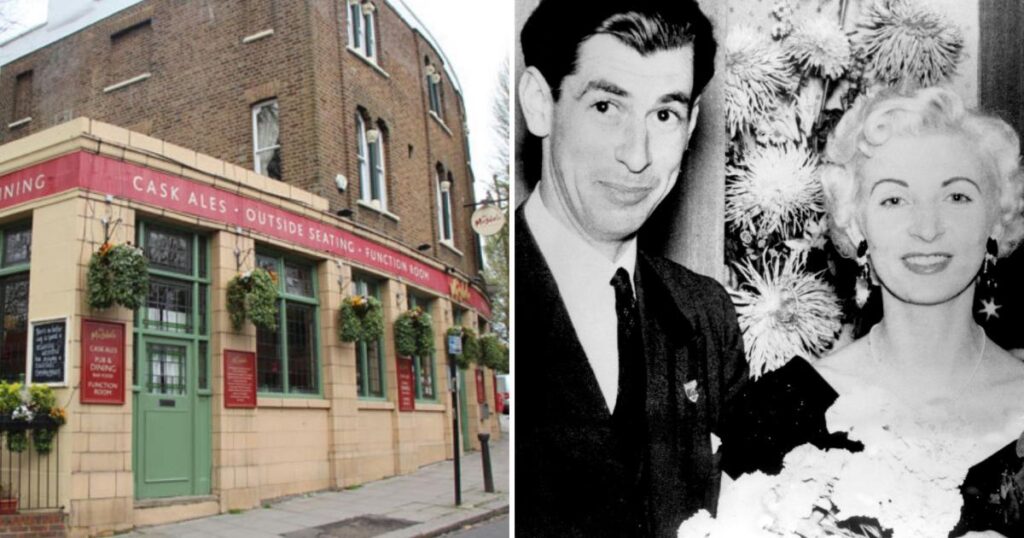Ruth Ellis shot her lover David Blakely outside the Hampstead pub in April 1955, and just three months later was executed at Holloway Prison.
Although she confessed to the murder, there were extenuating circumstances – with Ellis enduring physical and verbal abuse from Blakely, and a miscarriage 10 days before the shooting.

Now the film of that show will be screened at the pub on July 13 – the anniversary of Ellis’s execution.
Dr Elizabeth Love will once again play the role of Ruth Ellis to introduce the screening.

“Delivering a fully improvised spoken word piece as the essence of Ruth was a profound experience and witnessing the featured artists share their own stories of toxic love, longing, and inner trials made the night even more transformative.”
She added: “Ruth’s story shines a light on the perpetuation of trauma and abuse. What made this event so meaningful was how it gave the audience permission to feel the full complexity of each character’s experience without needing to take sides. When we begin relating to one another as humans first, we can start to redefine justice, and maybe even stop the cycle of harm.”
The Glade Theatre began during lockdown on Hampstead Heath as an outdoor performance space where people of all ages could gather for socially-distanced culture.
Founder Stefan Simanowitz said: “Exactly seventy years ago, the execution of Ruth Ellis became a turning point in the movement for the abolition of the death penalty.
“Rather than being macabre, this is poignant, powerful and life-affirming piece which takes the audience on a powerful journey. Like Shakespearian or Greek tragedy, drama can help us explore what it is to be human and hold a mirror to ourselves and our society.”
In 1999 Ruth’s case was brought to the Criminal Cases Review Commission by her sister Muriel Jakubait to see whether they could apply legal defences of diminished responsibility and provocation.
But despite referring the conviction on the basis that the original judge was wrong to remove the defence of provocation, the Court of Appeal upheld the conviction in 2003.




